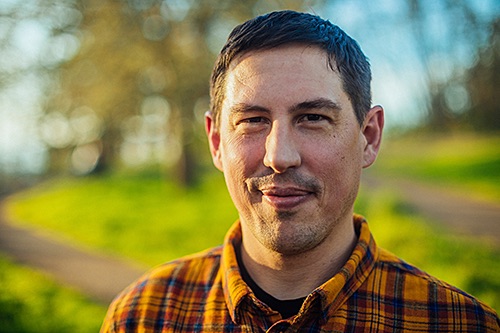We hiked out of the canyon the next day, the last of the water from Page Springs sloshing around in water bottles and CamelBaks. Even in November, even before it was too late in the day, the heat felt punishing. Again, the hike kicked everyone’s butt, but it kicked a few students extra hard, and at least one person puked. There were blisters and cramps and sprained ankles. The agony wasn’t just physical, though. The strain was also mental. You’d plod and plod and plod uphill, breathing hard, sweat pouring off, and then you’d stop and rest and look up to see how far you still had to climb, and the canyon rim would never seem any closer than it did the last time. In fact, maybe it even seemed a little farther away.
When we finally reached the top, one of the first students up there raised his arms above his head Rocky style and let out a joyous f-bomb, startling some of the tourists in the parking lot. There was something to savor in the looks the tourists gave him, looks that seemed both pitying and full of admiration. For most of them it was drive in, take some photos, and then drive out. They never actually bothered to find out what was really down there. They thought we were crazy while we thought they were.
A few nights after getting home from the trip, I sat on my futon mattress and started writing. I was renting a renovated garage from one of the college’s full-time faculty members. It came with access to the house’s kitchen and bathroom, but the garage was really more studio space than living quarters. It had no plumbing, a concrete floor, and an ancient wood stove but no wood. I had a TV that only picked up one channel. No smart phone. The only internet access was at the school.
Those big, innocent eyes. Those tear streaks. That dirty stuffed animal.
I still can’t reconcile the question. On the one hand, I thought it was immeasurably awesome for those parents to take their kids backpacking in the Grand Canyon like that—and to take them backpacking in that part of the Grand Canyon. I’m of the firm belief that spending time in nature is the best tonic to the otherwise insane world we live in, a tonic that’s especially important for kids. On the other hand, I wondered if there wasn’t also something a bit bullying in making those kids take on such a challenging trail. Even at a young age, kids can carry some of their stuff, but at what age do we make them start carrying all of it? A walk is not the same as a hike, and a hike is not the same as an overnight trip, and an overnight trip in the Grand Canyon backcountry is not the same as an overnight trip anywhere else.
I kept trying to imagine things from those two girls’ perspectives. Had their small legs burned and ached in the same way as mine? What did the drop offs that induced vertigo in me cause in them? What about the parts of the canyon that made me feel sublime? How much choice did they have in even coming?
What would they do if they were suddenly thrust into the situation where they were totally on their own, where there were no parents and no stuffed animal buddy to hold onto?
November is National Novel Writing Month, otherwise known as NaNoWriMo, where the goal is to produce a fifty-thousand-word novel before the month ends, quality be damned. At the time, I’d been struggling to finish a collection of short stories I’d been working on for years, so starting a young adult novel while also teaching three classes made a strange kind of sense.
I decided I was going to put a young girl in the wilderness, and I was going to kill her father.
The first draft began, “When the sheriff asked me to tell him what had happened . . .”
“Putting Her on the River” continues in part three on Friday. Read the first part here.

